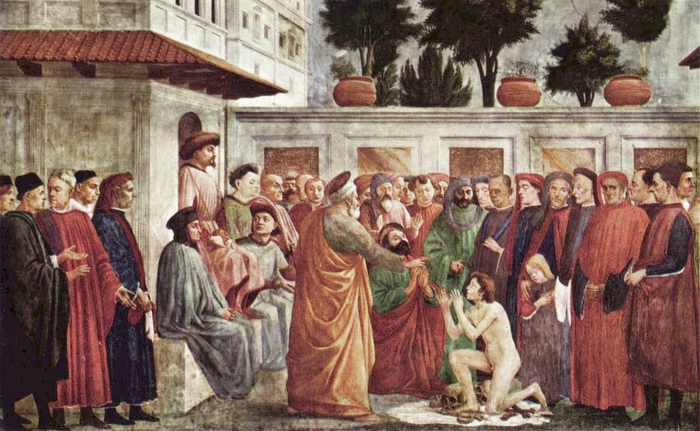written by Stephanie E. Shockley
Acts 8:14-25
At the beginning of the eighth chapter of the Book of Acts, the followers of Jesus, the very first members of the Church, are in crisis. In Chapter 7, Stephen was stoned to death, becoming the first Christian martyr. A young man named Saul (who we will come to know as Paul after his conversation on the Damascus Road) is zealously persecuting and imprisoning Christians in Jerusalem. Overwhelmed and afraid, many followers of the Way flee Jerusalem and scatter throughout the countryside of Judea and Samaria.
Phillip is one of those who flees Jerusalem and heads north into the region of the Samaritans. During his time in Samaria, Phillip began to tell people about Jesus. I’m not sure what he expected to come of those conversations. After all, the people of Samaria and the people of Judea despised each other. The Samaritans were the remnant of the Northern Kingdom of Israel, the people who believed that one was to worship God “in the high places” i.e. on Mount Gerezim. The people of the Southern Kingdom of Judea believed that God was to be worshipped at the Temple in Jerusalem. The original followers of Jesus were Jewish, and connected to Judea and Temple Judaism. To them, Samaritans were dangerous heathens.
With all that history in mind, it would have been understandable if Phillip had very low expectations about the effectiveness of proclaiming the Gospel in Samaria. However, it turns out that Phillip had much success preaching the Gospel among the Samaritans, so much so that small Christian communities begin to spring up in villages throughout the region.
In today’s passage the apostles John and Peter come to Samaria to follow up on Phillip’s work. To add to their surprise and amazement, even the local sorcerer is baptized, and when he misunderstands the nature of their work, repents and asks for their prayers. It must have been confusing and disorienting, yet very exciting, for Philip, John, and Peter to see faith in Jesus take hold among Samaritans, even as persecutions continued back in Jerusalem. These stories from the early days of the Church show how, in the midst of a crisis that threatened the very lives of the early Christians, the message of Jesus continued to spread.
—
I recently saw a Washington Post headline that described the current situation in the United States as one of a triple crisis – “pandemic, deep recession, and racial reckoning.” Any one of those situations alone would be more than most of us could process; three at once is almost unimaginable. We are living through a time of seismic change not seen in generations. It is a time with no shortage of surprising, shocking, and tragic news and events. It’s a time that we struggle to describe or put a name on. I keep hearing and reading this era described in vague terms – “these challenging times” or “these unprecedented times” or “all this” or simply “2020.”
When “all this,” starting with the pandemic, began, people would ask me what I was learning. What was I thinking about, reflecting on? My initial reaction was “are you kidding me? I am just trying to get through each day and to calm my own anxieties enough to be helpful to others. What am I learning? Ask me some other time later!”
Well, now it is later. The pandemic continues its tragic trajectory. Millions are out of work. And we are only just beginning (but perhaps it is a real beginning?) to have a conversation about race in this country.
Now, with the year halfway over, I find myself a bit less caught up in the surprise and shock of it all, and able to reflect a bit. Maybe you too are in a place where you can reflect a bit. If you’re not, that’s okay. But if you are, here are some questions that might be worth considering:
What have you learned about yourself that you didn’t know before?
How has your faith been challenged? How has it grown?
Where is God in all of this for you?
What are you praying for?
What has surprised you in a good way in this time of crisis? What has disappointed you?
Which choices in your life have been confirmed? Which ones have been called into question? Have your priorities changed?
What are you doing to work for justice in this time when deep injustice has been revealed in new ways? How are you contributing to hope? How are you preaching the kingdom of God in your words and actions?
I hope that as you read today’s passage from Acts you were encouraged by how the disciples continued on in the midst of crisis and brought the Good News of Jesus Christ in places that surprised even them.
The Rev. Stephanie Shockley is the Priest-in-Charge of the Episcopal Church of the Holy Cross in North Plainfield, NJ. She has also worked as a hospital chaplain as well as a volunteer chaplain to New York City’s activist community.

